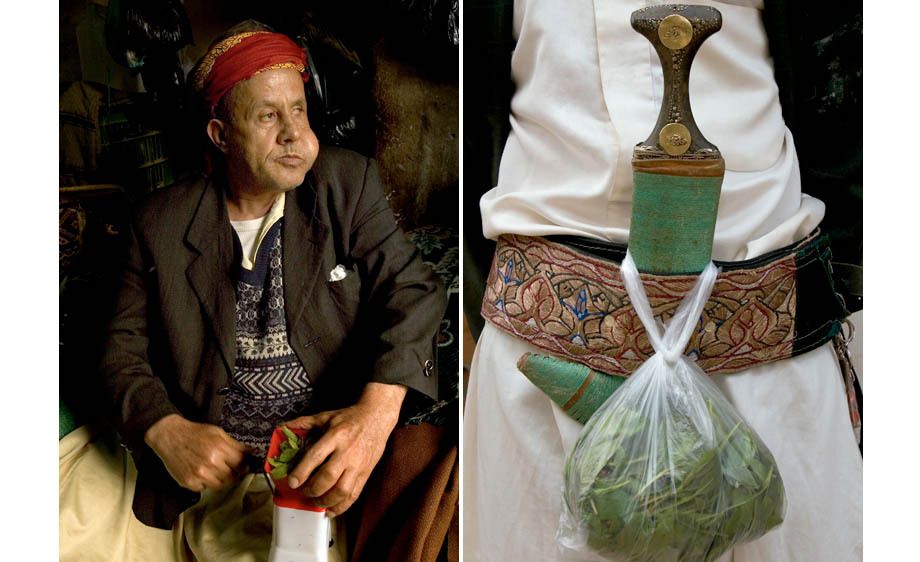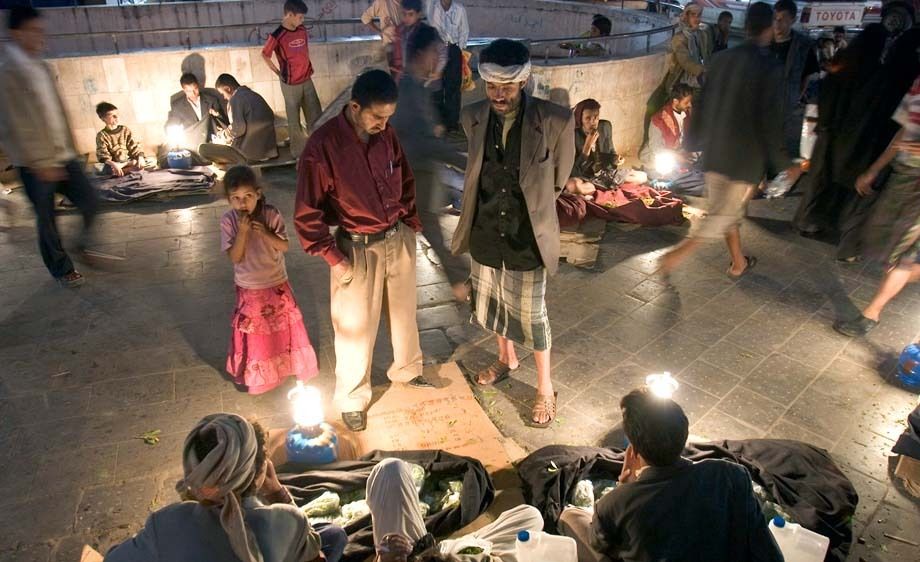-
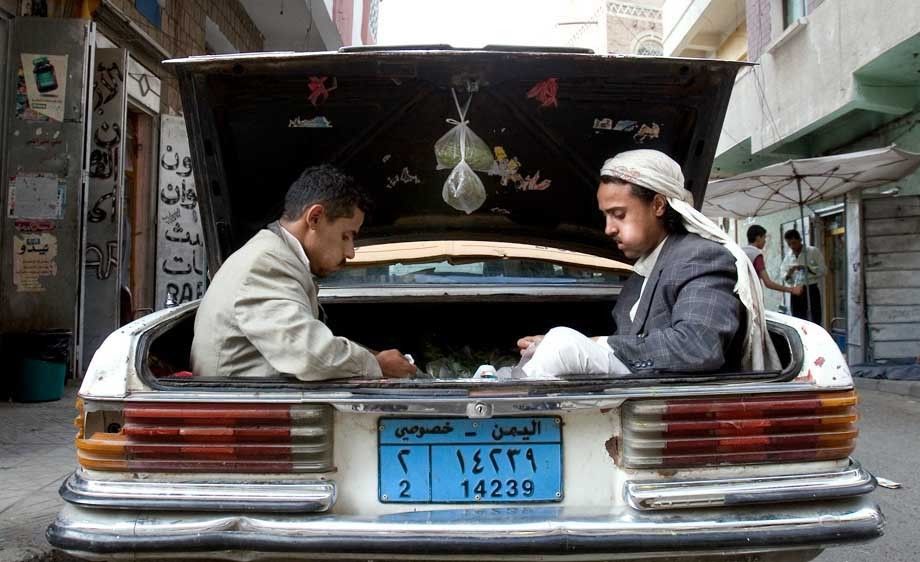
Khat in Yemen
Socialization in Yemen revolves around chewing khat, an amphetamine-like plant whose leaves are plucked, chewed and held in the mouth. Chewing khat is the main activity at most social gatherings, both informal and formal. In recent years, it has even come to define Yemeni culture. However, khat has replaced many food crops in Yemen and requires large amounts of water to produce. With Yemen facing an impending water shortage, and with many of the effects of khat on the body largely unknown, some Yemenis are questioning the countrywide use of the drug. In this image Mohammed, right, and Ali, chew and sell qat out of the trunk of a car in Sana'a.
-
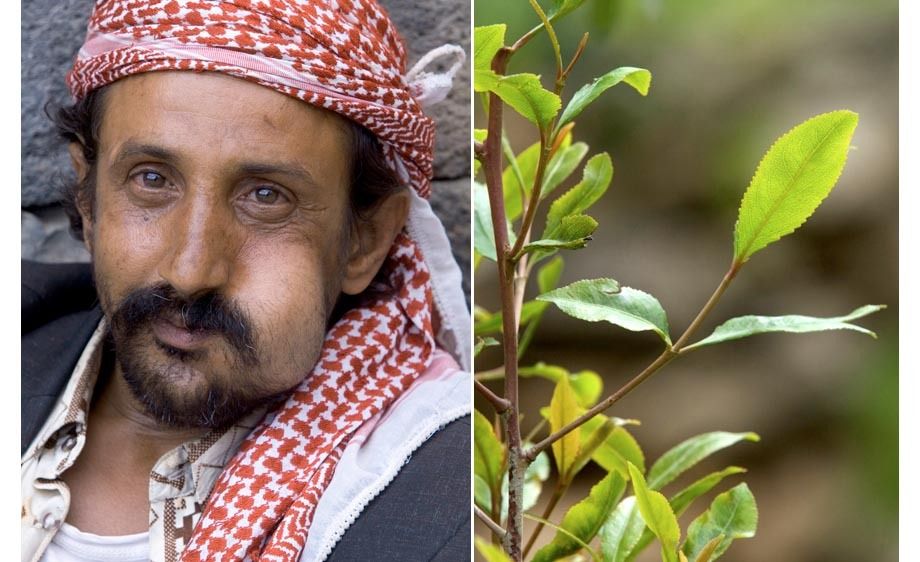
Ali Abdullah al-Khadar, left, stores a wad of khat in his mouth as he relaxes in Old Sana'a. Unharvested Khat leaves glow in the sun.
-
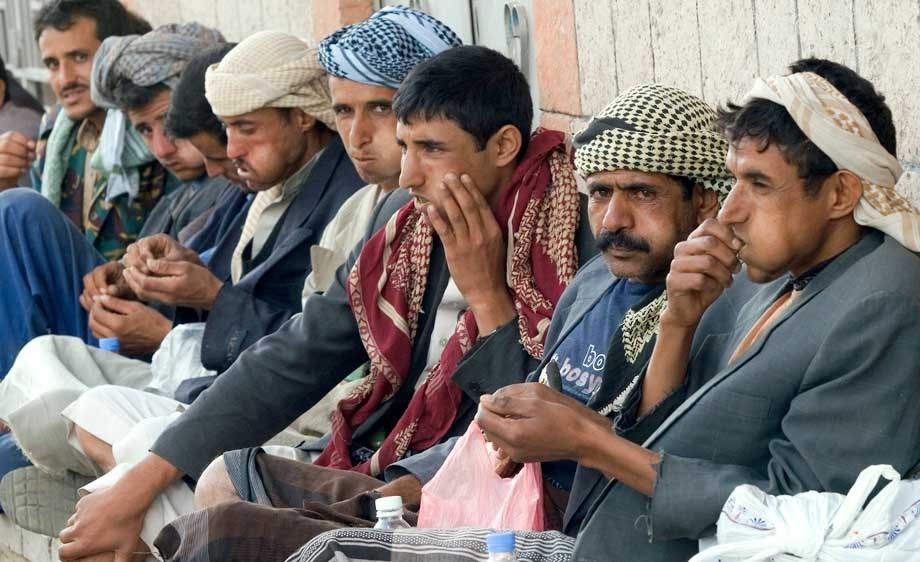
Men chew khat together along the side of a street in Sana'a in the early afternoon.
-
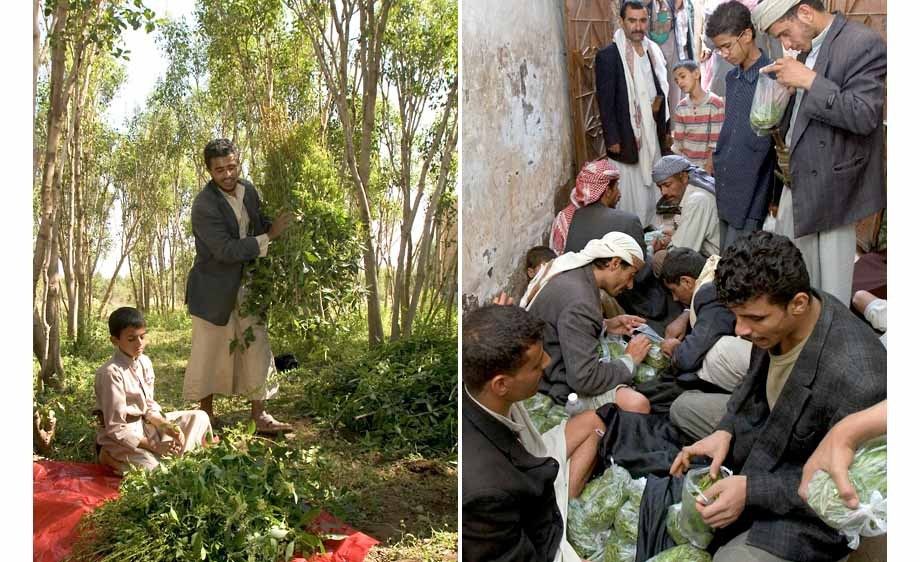
Hamed Yaha, left, assists Mohammed Yaha Maslah as he harvests khat from a field near Sana'a to sell it to buyers. These buyers then sell the leaves in small plastic bags to customers in khat markets like this one on the right.
-
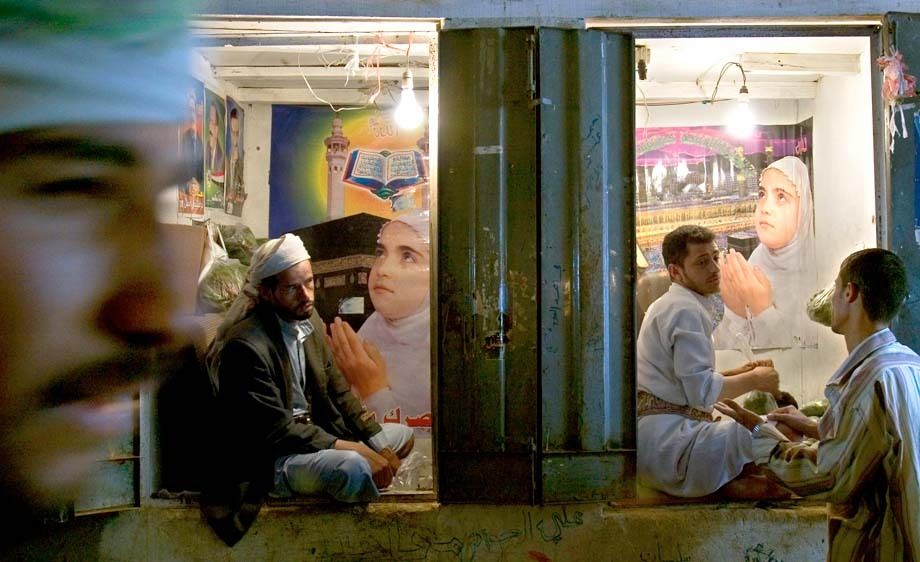
Khat vendors sell khat out of small booths in an indoor khat suq in Sana'a.
-
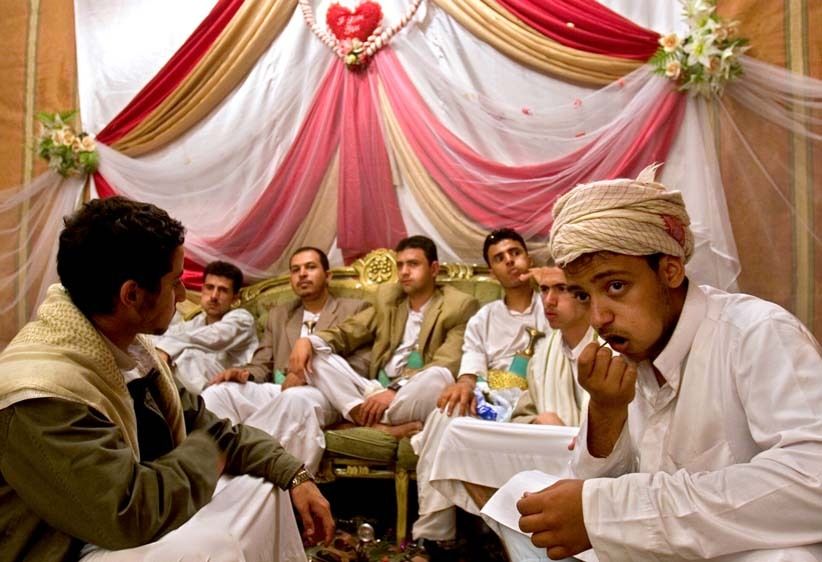
Men chew khat at a wedding celebration in Sana'a. Weddings in Yemen are sex segregated and the main activity for the men is khat chewing.
-
![Qat trees grow in fileds and among homes in the town of Silfi, on the left. Men visit Ain Beni Mathar, a water source near Sana'a.]()
Qat trees grow in fileds and among homes in the town of Silfi, on the left. Men visit Ain Beni Mathar, a water source near Sana'a.
-
![Mohammed Ali Saleh, left, and Pashar Ahmed Ali chew qat and relax on a ridge overlooking Sana'a that is a popular place for men to chew qat with each other in the afternoons.]()
Mohammed Ali Saleh, left, and Pashar Ahmed Ali chew qat and relax on a ridge overlooking Sana'a that is a popular place for men to chew qat with each other in the afternoons.
-
![Ali Yaha Sawi, who has lost most of his teeth, uses a small grinder to turn qat leaves into a fine powder he can store in his mouth without chewing, on left. Many Yemeni men carry newly purchased bags of qat on traditional daggers called jambiyyas.]()
Ali Yaha Sawi, who has lost most of his teeth, uses a small grinder to turn qat leaves into a fine powder he can store in his mouth without chewing, on left. Many Yemeni men carry newly purchased bags of qat on traditional daggers called jambiyyas.
-
![Khat sellers line the sidewalk at Bab Al Sabah, a market and entrance into Old Sana'a, late into the night.]()
Khat sellers line the sidewalk at Bab Al Sabah, a market and entrance into Old Sana'a, late into the night.


